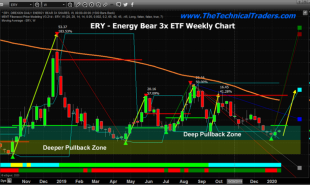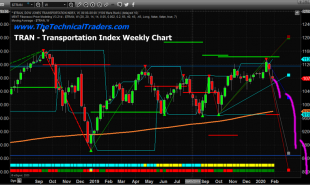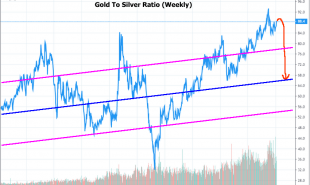
The CFTC Approved through “self certification” trading of Bitcoin futures on CME, Cantor, and CFE bourses today

Washington, DC — Today, the Chicago Mercantile Exchange Inc. (CME) and the CBOE Futures Exchange (CFE) self-certified new contracts for bitcoin futures products, and the Cantor Exchange (Cantor) self-certified a new contract for bitcoin binary options.
“Bitcoin, a virtual currency, is a commodity unlike any the Commission has dealt with in the past,” said CFTC Chairman J. Christopher Giancarlo. “As a result, we have had extensive discussions with the exchanges regarding the proposed contracts, and CME, CFE and Cantor have agreed to significant enhancements to protect customers and maintain orderly markets. In working with the Commission, CME, CFE and Cantor have set an appropriate standard for oversight over these bitcoin contracts given the CFTC’s limited statutory ability to oversee the cash market for bitcoin.”
“Market participants should take note that the relatively nascent underlying cash markets and exchanges for bitcoin remain largely unregulated markets over which the CFTC has limited statutory authority. There are concerns about the price volatility and trading practices of participants in these markets. We expect that the futures exchanges, through information sharing agreements, will be monitoring the trading activity on the relevant cash platforms for potential impacts on the futures contracts’ price discovery process, including potential market manipulation and market dislocations due to flash rallies and crashes and trading outages. Nevertheless, investors should be aware of the potentially high level of volatility and risk in trading these contracts.”
Commission staff held rigorous discussions with CME over the course of six weeks, CFE over the course of four months, and had numerous calls with Cantor. CME, CFE and Cantor agreed to significant enhancements to contract design and settlement, and CME to margining, at the request of Commission staff, as well as more information sharing with the underlying cash bitcoin exchanges to assist CME, CFE, Cantor and the CFTC in surveillance. The Commission, CME, CFE and Cantor will also coordinate to the extent possible in any surveillance activities, including providing the CFTC with additional surveillance information.
As trading on these DCMs evolves, the Commission will continue to assess whether further changes are required to the contract design and settlement processes and work with the DCMs to effect any changes.
Once the contracts are launched, Commission staff will engage in a variety of risk-monitoring activities. These activities include monitoring and analyzing the size and development of the market, positions and changes in positions over time, open interest, initial margin requirements, and variation margin payments, as well as stress testing positions. Commission staff will additionally conduct reviews of designated contract markets, derivatives clearing organizations (DCOs), clearing firms and individual traders involved in trading and clearing bitcoin futures.
The CFTC will also work closely with the National Futures Association (NFA). NFA has issued an investor advisory on this topic to its members, including futures commission merchants and introducing brokers that are involved in the trading of any virtual currency futures product, and will closely monitor its member firms trading this product. If the Commission determines that the margin the DCOs hold against bitcoin futures positions is inadequate, it can take measures to require that the margin held at the DCOs be increased, including requiring that they use a longer margin period of risk to generate margin requirements.
As with all contracts offered through Commission-regulated exchanges and cleared through Commission-regulated clearinghouses, the completion of the processes described above is not a Commission approval. It does not constitute a Commission endorsement of the use or value of virtual currency products or derivatives. It is incumbent on market participants to conduct appropriate due diligence to determine the particular appropriateness of these products, which at times have exhibited extreme volatility and unique risks.
The Commission, pursuant to its statutory mission, will continue to foster open, transparent, competitive and financially sound markets. The CFTC will monitor markets and work closely with the exchanges to avoid systemic risk and to protect market users and their funds, consumers and the public from fraud, manipulation and abusive practices related to products that are subject to the Commodity Exchange Act.
Last Updated: December 1, 2017
Bitcoin Soars After CFTC Approves Futures Trading: First Trade To Take Place Dec.18
Bitcoin is back over $10,000 after the the CFTC confirmed what had been previously reported, namely that it would allow bitcoin futures to trade on two exchanges, the CME and CBOE Futures Exchange, also granting the Cantor Exchange permission to trade a contract for bitcoin binary options.
The CFTC announced that through a process known as "self-certification," CME and Cboe stated that their contracts comply with U.S. law and CFTC regulations. The US commodity regulator also said that the it held “rigorous discussions” with the exchanges that resulted in improvements to the contracts’ designs and settlement.
As to when the first bitcoin futures will cross the tape, the CME said it has self-certified the initial listing of its bitcoin futures to launch Monday, December 18, 2017.
“Bitcoin, a virtual currency, is a commodity unlike any the Commission has dealt with in the past,” said CFTC Chairman J. Christopher Giancarlo. “As a result, we have had extensive discussions with the exchanges regarding the proposed contracts, and CME, CFE and Cantor have agreed to significant enhancements to protect customers and maintain orderly markets. In working with the Commission, CME, CFE and Cantor have set an appropriate standard for oversight over these bitcoin contracts given the CFTC’s limited statutory ability to oversee the cash market for bitcoin.”
“Market participants should take note that the relatively nascent underlying cash markets and exchanges for bitcoin remain largely unregulated markets over which the CFTC has limited statutory authority. There are concerns about the price volatility and trading practices of participants in these markets. We expect that the futures exchanges, through information sharing agreements, will be monitoring the trading activity on the relevant cash platforms for potential impacts on the futures contracts’ price discovery process, including potential market manipulation and market dislocations due to flash rallies and crashes and trading outages. Nevertheless, investors should be aware of the potentially high level of volatility and risk in trading these contracts.”
In response to the news, Bitcoin has surged back over $10,000...
... and lifted the entire crypto space higher.
Some more details from the press release:
As trading on these DCMs evolves, the Commission will continue to assess whether further changes are required to the contract design and settlement processes and work with the DCMs to effect any changes.
Once the contracts are launched, Commission staff will engage in a variety of risk-monitoring activities. These activities include monitoring and analyzing the size and development of the market, positions and changes in positions over time, open interest, initial margin requirements, and variation margin payments, as well as stress testing positions. Commission staff will additionally conduct reviews of designated contract markets, derivatives clearing organizations (DCOs), clearing firms and individual traders involved in trading and clearing bitcoin futures.
The CFTC will also work closely with the National Futures Association (NFA). NFA has issued an investor advisory on this topic to its members, including futures commission merchants and introducing brokers that are involved in the trading of any virtual currency futures product, and will closely monitor its member firms trading this product. If the Commission determines that the margin the DCOs hold against bitcoin futures positions is inadequate, it can take measures to require that the margin held at the DCOs be increased, including requiring that they use a longer margin period of risk to generate margin requirements.
As with all contracts offered through Commission-regulated exchanges and cleared through Commission-regulated clearinghouses, the completion of the processes described above is not a Commission approval. It does not constitute a Commission endorsement of the use or value of virtual currency products or derivatives. It is incumbent on market participants to conduct appropriate due diligence to determine the particular appropriateness of these products, which at times have exhibited extreme volatility and unique risks.
The Commission, pursuant to its statutory mission, will continue to foster open, transparent, competitive and financially sound markets. The CFTC will monitor markets and work closely with the exchanges to avoid systemic risk and to protect market users and their funds, consumers and the public from fraud, manipulation and abusive practices related to products that are subject to the Commodity Exchange Act.
In other news, it is yet to be determined what initial and variation margin the CME/CBOE will demand for bitcoin trades.
* * *
So what does the start of bitcoin futures trading mean? Here is one explanation as posted last night from DataTrek's Nicholas Colas:
What will the entrance of futures exchanges and bitcoin contracts do to the price?
Both the CME and CBOE are set to launch bitcoin futures soon, and today the NASDAQ threw its hat in the ring as well. Moving bitcoin into a regulated structure will allow more sorts of investors and traders to speculate on price moves in the currency. That, the thinking goes, should be good for bitcoin prices.
One intriguing point: shorting bitcoin is currently a clunky process, but futures markets will make it much easier. The difficulty of shorting bitcoin has been an underappreciated feature of its meteoric rise, limiting true price discovery. Whether anyone is brave enough to put on a sizable short position remains to be seen. But someone who wants to back up their “Bitcoin is a fraud” talk with dollars will soon have a place to express their viewpoint.
Read more by Soren K.Group









